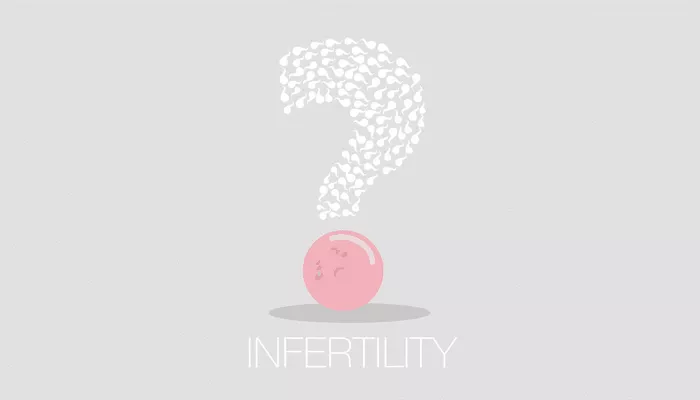For women hoping to conceive, adopting a fertility-focused diet can play a pivotal role in optimizing reproductive health and increasing the chances of pregnancy. A fertility diet is a strategic approach to nutrition that emphasizes consuming foods rich in key nutrients known to support fertility while avoiding those that may hinder it. By understanding the nutrients essential for fertility, as well as the foods to include and avoid, women can empower themselves to make informed dietary choices that positively impact their reproductive journey.
Nutrients Essential for Fertility
Several nutrients play critical roles in reproductive health and fertility. Incorporating these nutrients into your diet can help support hormone balance, egg quality, and overall reproductive function.
1. Folic Acid: Folic acid, also known as folate, is a B vitamin that is crucial for fetal development and reducing the risk of neural tube defects. For women trying to conceive, adequate folic acid intake is essential even before pregnancy occurs.
2. Omega-3 Fatty Acids: Omega-3 fatty acids, particularly EPA and DHA found in fatty fish like salmon and mackerel, are important for regulating inflammation and promoting hormone production, which can enhance fertility.
3. Iron: Iron is vital for healthy blood production and oxygen transport, both of which are crucial for optimal reproductive function. Iron-rich foods include lean meats, beans, lentils, and leafy greens.
4. Antioxidants: Antioxidants such as vitamins C and E, selenium, and beta-carotene help protect reproductive cells from damage caused by free radicals, thereby supporting egg and sperm health. Colorful fruits and vegetables, nuts, seeds, and whole grains are excellent sources of antioxidants.
Foods to Include
A fertility-focused diet should be rich in nutrient-dense foods that provide the essential vitamins, minerals, and antioxidants necessary for reproductive health.
1. Leafy Greens: Spinach, kale, Swiss chard, and other leafy greens are packed with fertility-boosting nutrients like folate, iron, and antioxidants.
2. Fresh Fruits: Berries, citrus fruits, mangoes, and other fresh fruits are excellent sources of vitamin C and other antioxidants that support reproductive health.
3. Lean Proteins: Incorporate lean protein sources such as poultry, fish, tofu, and legumes into your meals to ensure an adequate intake of protein and iron.
4. Healthy Fats: Opt for sources of healthy fats like avocados, nuts, seeds, and olive oil, which provide essential fatty acids that support hormone production and reproductive function.
Foods to Avoid
While certain foods can support fertility, others may have adverse effects and should be limited or avoided altogether.
1. High-Mercury Fish: Some fish, such as swordfish, shark, and king mackerel, contain high levels of mercury, which can impair fertility and harm fetal development. Choose low-mercury options like salmon, trout, and sardines instead.
2. Processed Meats: Processed meats like bacon, sausage, and deli meats have been associated with reduced fertility and should be consumed sparingly.
3. Excessive Caffeine: While moderate caffeine intake is generally considered safe, excessive caffeine consumption has been linked to fertility issues. Limit your intake of coffee, tea, and caffeinated beverages.
Meal Planning Tips
Planning balanced meals that incorporate fertility-boosting foods can help ensure optimal nutrition for reproductive health.
1. Prioritize Variety: Aim to include a diverse array of fruits, vegetables, whole grains, lean proteins, and healthy fats in your meals to maximize nutrient intake.
2. Batch Cook: Prepare large batches of nutritious meals and snacks ahead of time to streamline meal prep and ensure access to healthy options throughout the week.
3. Focus on Whole Foods: Choose whole, minimally processed foods whenever possible to maximize nutrient density and minimize exposure to additives and preservatives.
Hydration and Fertility
Staying adequately hydrated is essential for overall health and can also impact fertility. Dehydration can affect cervical mucus production, which plays a crucial role in sperm transport and fertilization. Aim to drink plenty of water throughout the day and hydrate with herbal teas and fresh fruit juices to support reproductive health.
Lifestyle Considerations
In addition to dietary factors, various lifestyle habits can influence fertility outcomes.
1. Maintain a Healthy Weight: Both underweight and overweight individuals may experience fertility challenges. Aim for a balanced diet and regular exercise to achieve and maintain a healthy weight.
2. Manage Stress: Chronic stress can disrupt hormone balance and interfere with ovulation and menstrual cycles. Incorporate stress-reducing activities such as meditation, yoga, and deep breathing exercises into your daily routine.
3. Avoid Tobacco and Alcohol: Smoking and excessive alcohol consumption have been linked to reduced fertility and may increase the risk of pregnancy complications. Quit smoking and limit alcohol intake to support reproductive health.
When to See a Doctor
If you’ve been actively trying to conceive for six months to a year without success, consider consulting with a healthcare professional specializing in fertility. They can provide personalized guidance, perform diagnostic tests, and offer treatment options to address any underlying issues and improve your chances of conception.
Conclusion
In conclusion, adopting a fertility-focused diet that includes nutrient-rich foods, prioritizes hydration, and supports a healthy lifestyle can significantly enhance reproductive health and increase the likelihood of achieving pregnancy. By making informed dietary choices and addressing other lifestyle factors that impact fertility, women can take proactive steps towards realizing their goal of starting or expanding their family.


























